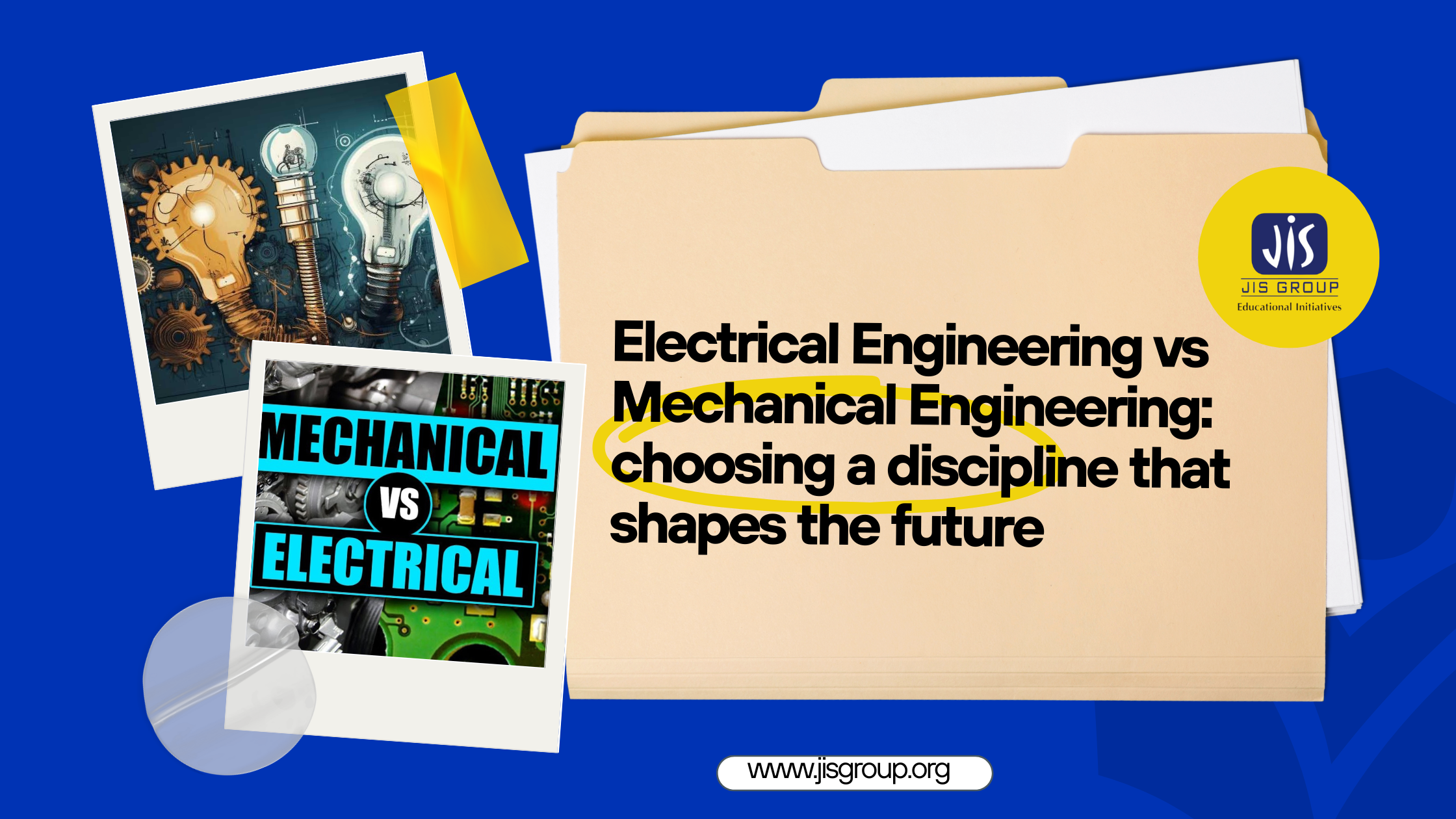For aspiring engineers, the choice between Electrical Engineering and Mechanical Engineering is not about which is “better,” but about which aligns with your interests and ambitions. Do you want to master the flow of electrical energy, smart systems, and automation, or design the movement of machines, engines, and physical systems?
Both pathways demand analytical thinking, applied mathematics, and problem-solving skills. Yet their courses, career opportunities, and industry applications differ, and understanding these differences is key before enrolling in electrical engineering courses or mechanical engineering courses.
Electrical Engineering: Powering the Future
Electrical Engineering focuses on the generation, transmission, and application of electricity, as well as the design of electronic systems. Students pursuing electrical engineering courses study:
-
Circuit theory and signals
-
Power systems and control theory
-
Electromagnetic fields and microelectronics
-
Software, embedded systems, and renewable energy technologies
Career opportunities span across power utilities, telecommunications, semiconductor industries, automation, and renewable energy integration. With the rise of electric mobility, many universities now also offer electric vehicle engineering courses, giving students the skills to work on EV drivetrains, charging systems, and battery technologies.
Electrical engineering course fees vary depending on the institution, but most programs represent strong value for money considering the career scope. Salaries for electrical engineers remain highly competitive, and global demand is projected to increase in the coming decade.
Mechanical Engineering: Designing Motion and Machines
Mechanical Engineering is the oldest and broadest engineering discipline, concerned with the design, analysis, manufacturing, and maintenance of machines and mechanical systems. Students enrolling in mechanical engineering courses study:
-
Thermodynamics and fluid mechanics
-
Materials science and manufacturing processes
-
Robotics and mechatronics
-
CAD/CAM and advanced design
Mechanical engineers are critical to industries like transportation, aerospace, robotics, HVAC, consumer products, and industrial automation. For those seeking shorter programs, many institutions also provide mechanical engineering diploma courses, which offer practical skills and faster entry into industry roles.
The demand for mechanical engineers continues to rise as industries adopt automation, robotics, and advanced manufacturing.
How to Choose: Aptitude and Ambition
-
Electrical Engineering suits students drawn to mathematics, abstract systems, and energy applications, including careers in power grids, electronics, embedded systems, or EV engineering.
-
Mechanical Engineering is ideal for those with spatial intuition, an interest in machines and product design, and a fascination with thermodynamics and motion systems.
Importantly, modern industries are interdisciplinary. Engineers who blend electrical and mechanical knowledge—such as in robotics, mechatronics, and automation—enjoy especially versatile careers.
Industry Outlook and Remuneration
Both fields provide excellent job security and strong long-term growth:
-
Electrical engineering graduates are in demand in renewable energy, smart grids, and electric vehicles.
-
Mechanical engineering graduates are vital for automation, aerospace, and manufacturing.
Salaries remain competitive in both disciplines, and course investments—including electrical engineering course fees or mechanical engineering diploma courses—translate into strong returns over time.
What Top Engineering Programs Should Offer
Whether you choose electrical engineering courses or mechanical engineering courses, look for programs that balance theory with hands-on learning. Key features include:
-
Modern labs: power systems, thermofluids, robotics, CAD/CAM, and automation
-
Project-based courses and internships
-
Tools like MATLAB, CAD software, PLCs, and embedded systems platforms
-
Options for specialization (such as electric vehicle engineering courses)
Institutes that offer both B.Tech programs and diploma courses give students flexibility in shaping their educational path.
A Note on JIS Group of Educational Initiatives
Institutions under the JIS Group Educational Initiative offer structured B.Tech and diploma programs in Electrical and Mechanical Engineering. Students benefit from advanced labs, industry tie-ups, and experienced faculty. Whether your interest lies in power and electronics or motion and design, JIS programs ensure you graduate with both theoretical depth and practical exposure.
Practical Advice for Applicants
-
Review sample syllabi and lab facilities before admission.
-
Compare electrical engineering course fees and program features across institutions.
-
Explore whether the college offers electric vehicle engineering courses or mechanical engineering diploma courses for flexibility.
-
Engage in small projects (robotics kits, power converters, CAD designs) to test your interests.
Conclusion
The choice between Electrical Engineering and Mechanical Engineering depends on your passion:
-
If you’re drawn to electricity, electronics, and EV technology, then electrical engineering courses are for you.
